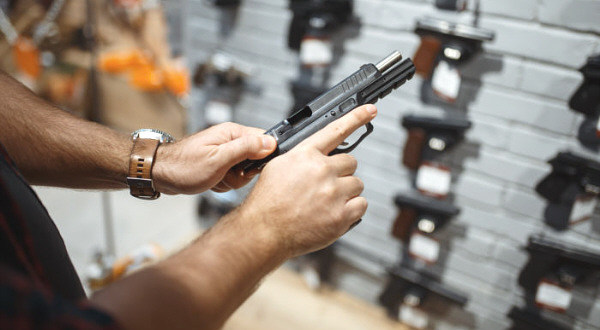

The Rules of Gun Safety

By JPFO. November 8, 2021
Safety with firearms is paramount and something to be taken seriously by everyone. New gun owners would be well advised to study, learn and implement the rules and those who are long time gun owners should avoid complacency and continue to strictly follow the rules at all times.
The following is a selection of safety rules from various sources and while nomenclature may vary, the basic message is the same and applies to ALL firearms from small pocket pistols all the way up to high velocity rifles. You cannot call back a bullet once sent. Safety is a mind set.
![]()
NRA GUN SAFETY RULES:
1. ALWAYS_ keep the gun pointed in a safe direction.
2. ALWAYS_ keep your finger off the trigger until ready to shoot.
3. ALWAYS_ keep the gun unloaded until ready to use.
Know your target and what is beyond.
![]()
The late Col Jeff Cooper's four rules:
1) - All guns are always loaded, and should be treated as such
2) - Never point a gun at anything you do not wish to destroy
3) - Keep your finger off the trigger until ready to shoot
4) - Know your target and what is beyond."
![]()
National Shooting Sports Foundation:
GENERAL FIREARM HANDLING
• Treat every firearm as if it were loaded.
• Keep the muzzle pointed in a safe direction.
• Keep your fingers off the trigger. Don't rely on your firearm's "safety" device.
• Keep the firearm unloaded when not in use.
![]()
SECOND AMENDMENT FOUNDATION TRAINING DIVISION:
• Guns should always be pointed in a safe direction.
• Unload all firearms when not in use.
• Never touch the trigger until you're on target.
![]()
Gunsite Academy:
1. All guns are always loaded.
2. Never point your weapon at anything you're not willing to destroy.
3. Keep your finger off the trigger until your sights are on the target.
4. Always be sure of your target and what's beyond.
![]()
United States Marines
1. Treat every weapon as if it were loaded
2. Never point a weapon at anything you do not intend to shoot
3. Keep finger straight and off the trigger until you are ready to fire
4. Keep weapon on safe until you intend to fire
![]()
The Brady Campaign and Center to Prevent Gun Violence, Everytown for Gun Safety, Giffords Law Center to Prevent Gun Violence, Moms Demand Action for Gun Sense in America
• No gun-safety rules provided.
![]()
Safety Tips for Use of Firearms - Actors' Equity Association (actorsequity.org).
• Use simulated or dummy weapons whenever possible.
• Treat all guns as if they are loaded and deadly.
• Unless you are actually performing or rehearsing, the property master must secure all firearms.
• The property master or armorer should carefully train you in the safe use of any firearm you must handle. Be honest if you have no knowledge about guns. Do not overstate your qualifications.
• Follow all instructions given by the qualified instructor.
• Never engage in horseplay with any firearms or other weapons. Do not let others handle the gun for any reason.
• All loading of firearms must be done by the property master, armorer or experienced persons working under their direct supervision.
• Never point a firearm at anyone including yourself.
• Always cheat the shot by aiming to the right or left of the target character. If asked to point and shoot directly at a living target, consult with the property master or armorer for the prescribed safety procedures.
• If you are the intended target of a gunshot, make sure that the person firing at you has followed all these safety procedures.
• If you are required to wear exploding blood squibs, make sure there is a bulletproof vest or other solid protection between you and the blast packet.
• Use protective shields for all off stage cast within close proximity to any shots fired.
• Appropriate ear protection should be offered to the cast members and stage managers.
• Check the firearm every time you take possession of it. Before each use, make sure the gun has been test-fired off stage and then ask to test fire it yourself. Watch the prop master check the cylinders and barrel to be sure no foreign object or dummy bullet has become lodged inside.
• Blanks are extremely dangerous. Even though they do not fire bullets out of the gun barrel, they still have a powerful blast than can maim or kill.
• Never attempt to adjust, modify or repair a firearm yourself. If a weapon jams or malfunctions, corrections shall be made only by a qualified person.
• When a scene is completed, the property master shall unload the firearms. All weapons must be cleaned, checked and inventoried after each performance.
• Live ammunition may not be brought into the theatre.
• If you are in a production where shots are to be fired and there is no qualified property master, go to the nearest phone and call Actors' Equity Association. A union representative will make sure proper procedures are followed.
• State and federal safety laws must be honored at all times.
• If any of the above safety tips conflict with the instructions given by a qualified instructor, abide by the instructions from the qualified instructor. If you are still not sure, contact your Equity Business Representative.
![]()
























